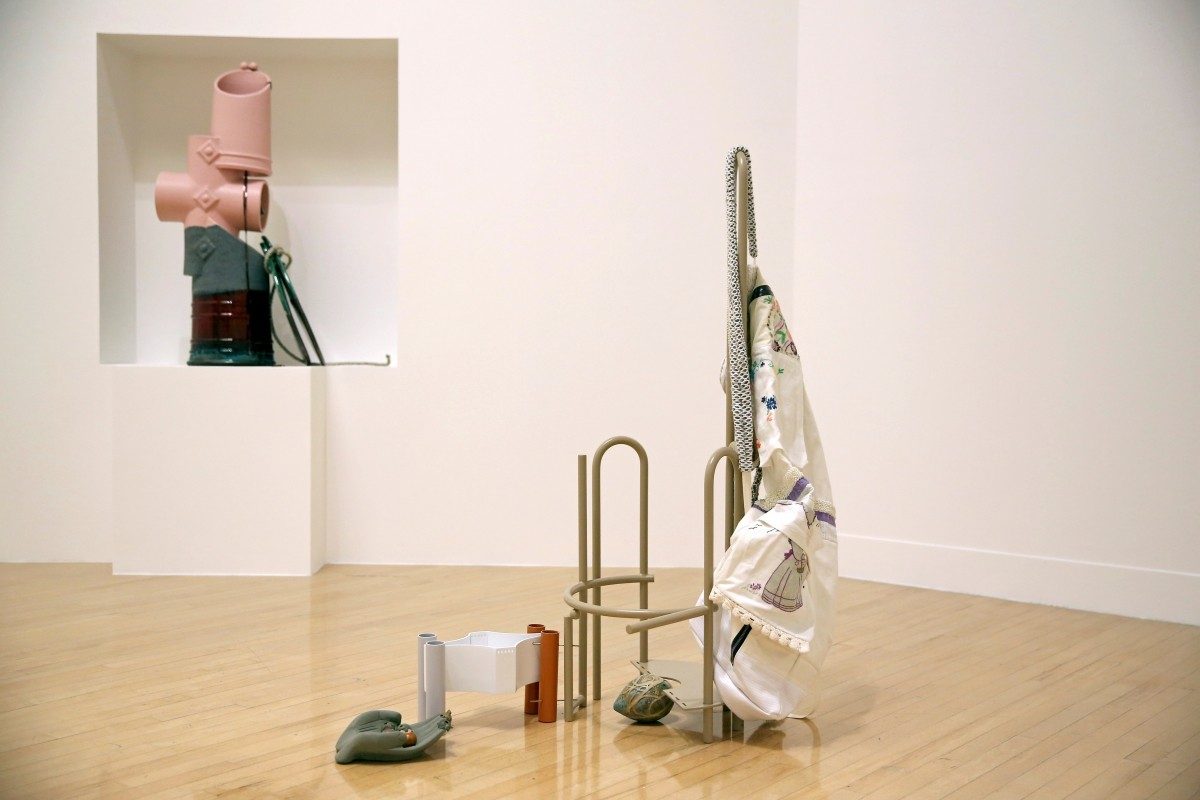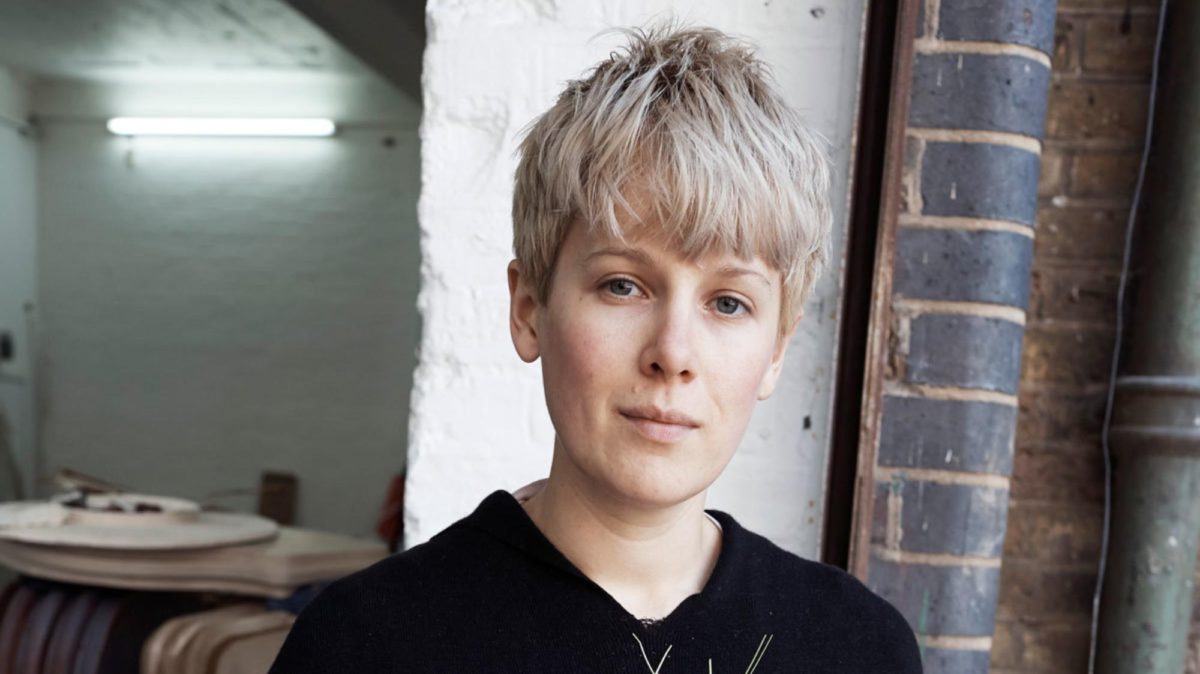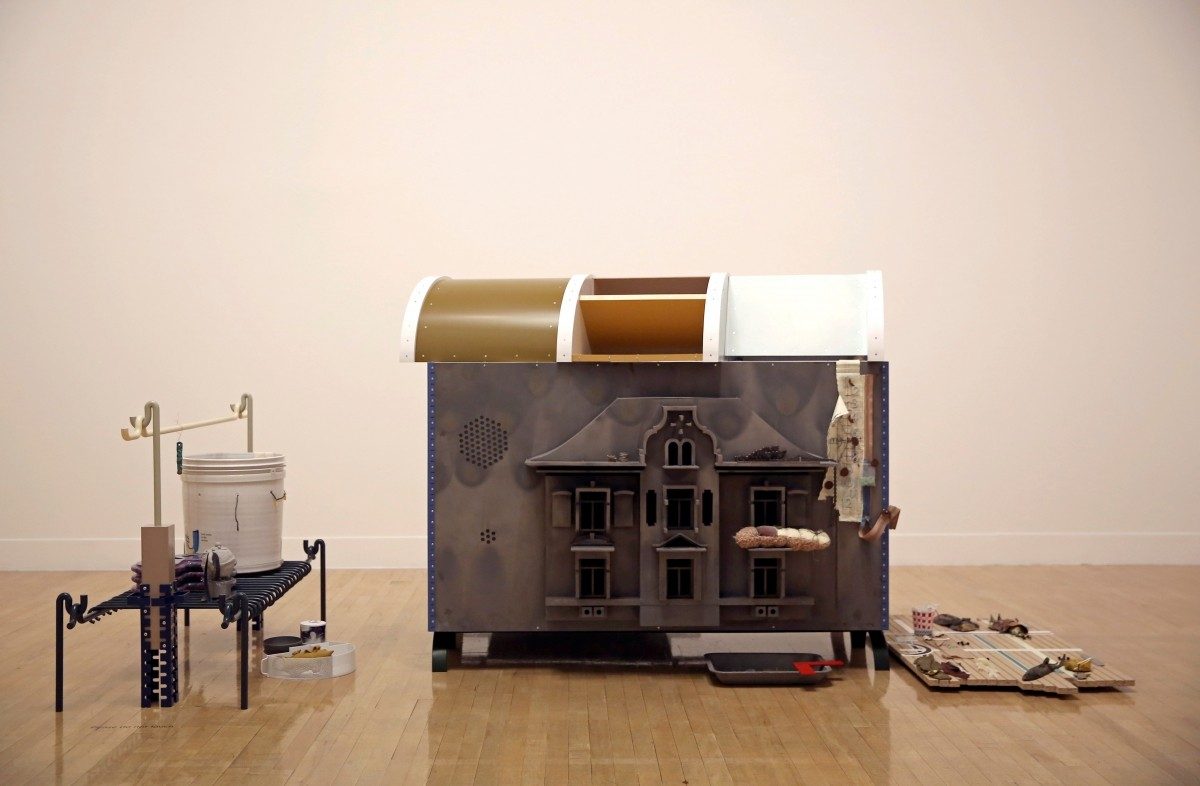Helen Marten Wins The 2016 Turner Prize
By Something CuratedFollowing a moving introduction from Nicholas Serota, Director of the Tate, in which he addressed the threats of insularity brought about by Brexit, as well as art’s irreplaceable function of cultivating open-mindedness, the British writer Ben Okri proclaimed Helen Marten as the winner of this year’s prize. Marten’s collection of sculptural installations, comprising puzzling assortments of found and newly fabricated objects, has earned her this year’s esteemed accolade. Her works on display at Tate Britain, as part of the Turner Prize exhibition, includes pieces made from cotton buds, marbles, snooker chalk and bicycle chains.

The 31-year-old painter and sculptor fuses an array of handmade and familiar objects from everyday life in her installations. Notably, Marten was the youngest artist on the shortlist this year. Her hybrid sculptures form a composite tableau of concepts and associations; these poetic assemblages interrogate meaning and assumption, and require an almost archaeological approach to decipher. In Parrot Problems, a doll’s house projects from what looks like a cross between an industrial deep-fat frier and a 1970s photocopier. Shells and pieces of snakeskin sit beside fragments of drain-pipe, which on closer inspection have been hand-made and glazed.

In 2013 and again in 2015, Marten was part of the International Exhibition of both the 55th and the 56th Venice Biennales. Though, interestingly, it was her participation at Enwezor’s exhibition, alongside her first solo show at Greene Naftali earlier this year, that earned her Turner Prize nomination. The opening of the Turner Prize’s exhibition at Tate Britain coincided with a remarkable solo show of Marten’s work at the Serpentine Gallery, followed by the Hepworth Prize group show at the Hepworth Wakefield.

Accepting her prize from Okri, Marten said she “wasn’t expecting” to win and that she could not think of “a more brilliant and exciting shortlist of artists to be part of”, also stating, “I couldn’t have won the Turner Prize if I hadn’t moved to London.” When the artist received the Hepworth Award back in November this year, she pledged to share the cash prize with her fellow nominees Phyllida Barlow, Steven Claydon, and David Medalla. According to the BBC, Marten also vowed to share the £25,000 from the Turner Prize with her shortlisted colleagues, Michael Dean, Anthea Hamilton, and Josephine Pryde.